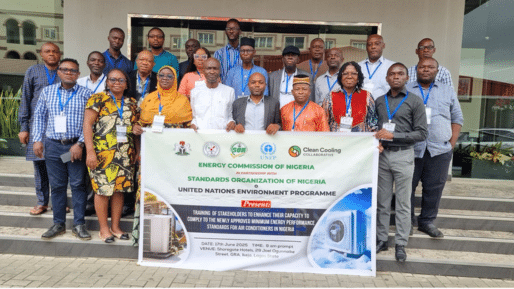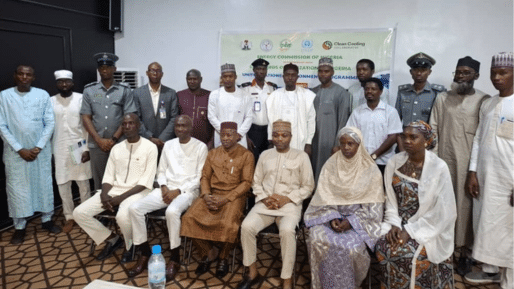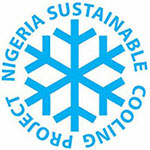Following the approval of new Minimum Energy Performance Standards (MEPS) for air conditioners, the Federal Government of Nigeria launched a nationwide awareness campaign to educate stakeholders and the public, aiming to promote compliance with the mandatory standards.
Stakeholder Engagement Workshops in Lagos and Kano
To enhance understanding and facilitate compliance with the new MEPS, the Energy Commission of Nigeria (ECN), the Standards Organisation of Nigeria (SON), and UNEP-U4E jointly organised high-level stakeholder workshops in two key economic hubs:

Kano (Northern Nigeria) on 24 June 2025

These workshops targeted key actors in the air conditioner supply chain — including manufacturers, importers, and distributors — who play a pivotal role in determining the quality and efficiency of products entering the Nigerian market.
Themed “Training of Stakeholders to Enhance Their Capacity to Comply with the Newly Approved Minimum Energy Performance Standards for Air Conditioners in Nigeria,” the events served as a critical platform for knowledge-sharing, dialogue, and capacity building.
Aligning Cooling with Climate Commitments
In his remarks delivered at the workshops, Dr Mustapha Abdullahi, Director-General of ECN (represented by Dr Shehu Mustafa, Acting Director and Head of the Energy Transition Unit), emphasized that the overarching goal of the Nigeria Sustainable Cooling Project (NSCP) is to accelerate the adoption of energy-efficient and climate-friendly air conditioning technologies. He noted that this directly supports Nigeria’s Nationally Determined Contributions (NDCs) under the Paris Agreement, helping reduce greenhouse gas emissions in a cost-effective and sustainable manner.
Dr Abdullahi highlighted the urgency of transitioning to sustainable cooling: “As our country strives for economic growth and development, the demand for cooling systems continues to rise. However, this demand comes with increased energy consumption and environmental consequences. It is our collective responsibility to adopt innovative and sustainable approaches that meet our cooling needs, mitigate climate change, and avoid overburdening our energy infrastructure.”
Enforcement and Technical Guidance
Mr Lawal Ismaila, Head of the Electrical Department at SON, reiterated SON’s mandate to enforce the MEPS. He explained that the revised standards aim to phase out inefficient and environmentally harmful air conditioners, many of which consume excessive electricity and contain ozone-depleting refrigerants. “The older models not only waste energy but also emit harmful gases that degrade the ozone layer and increase the risk of health problems. The new standards promote environmentally friendly models that deliver better cooling performance with reduced power consumption,” he said.
Building Capacity and Public Awareness
Speaking on behalf of UNEP-U4E, Mr Etiosa Uyigue, National Coordinator of the NSCP, outlined the key objectives of the workshops, which aim to:
- Increase awareness of the newly approved MEPS among key stakeholders;
- Build technical capacity to support compliance;
- Facilitate dialogue for smooth implementation;
- Strengthen collaboration between government agencies and the private sector to advance Nigeria’s climate and energy efficiency goals.
Uyigue added that the campaign is also tailored to resonate with the average Nigerian household and business owner, whose top concerns include high electricity bills, frequent blackouts, and affordability. The core message is simple: saving energy saves money, and buying good-quality products is good for business and the environment. By choosing energy-efficient air conditioners, users can lower their electricity costs, reduce stress on the grid, and enjoy better comfort. While the MEPS align with Nigeria’s climate commitments, the campaign deliberately focuses on these everyday benefits that directly impact users’ livelihoods.
Beyond the workshops, the NSCP has launched an extensive national sensitisation campaign using print, radio, and television platforms. Public engagement activities include news coverage and press releases in national newspapers, live radio programmes with phone-in segments for clarifications, and television appearances to highlight the benefits of choosing energy-efficient air conditioners.
During one of these appearances on Channels Television’s Dateline Abuja, Uyigue stressed that the MEPS represent a critical tool for achieving energy security and environmental protection.

Timeline for Enforcement
Uyigue confirmed that enforcement of the revised MEPS will commence in 2026, led by SON. He clarified that the government will not impose an immediate ban on existing units but will ensure only compliant ACs are allowed into the country going forward, while older units will be phased out naturally at the end of their service life.
Additionally, all compliant products will feature a mandatory energy label, enabling consumers to make informed choices based on energy performance. Uyigue urged Nigerians to support national efforts by choosing products that conserve energy, lower utility bills, and protect the environment.
With support from the United Nations Environment Programme’s United for Efficiency (UNEP-U4E), Nigeria revised its 2017 MEPS for room air conditioners used across residential, commercial, and public sectors. These updated MEPS were officially approved in late 2024 as part of the “Scaling Up Energy-Efficient and Climate-Friendly Cooling in Nigeria’s NDC Revision” project. The initiative is being implemented by the Energy Commission of Nigeria (ECN) in collaboration with the Standards Organisation of Nigeria (SON), with technical assistance from UNEP-U4E and funding from the Clean Cooling Collaborative (CCC).
United for Efficiency

